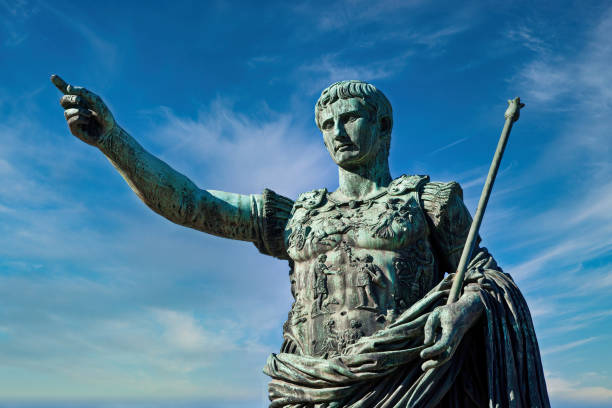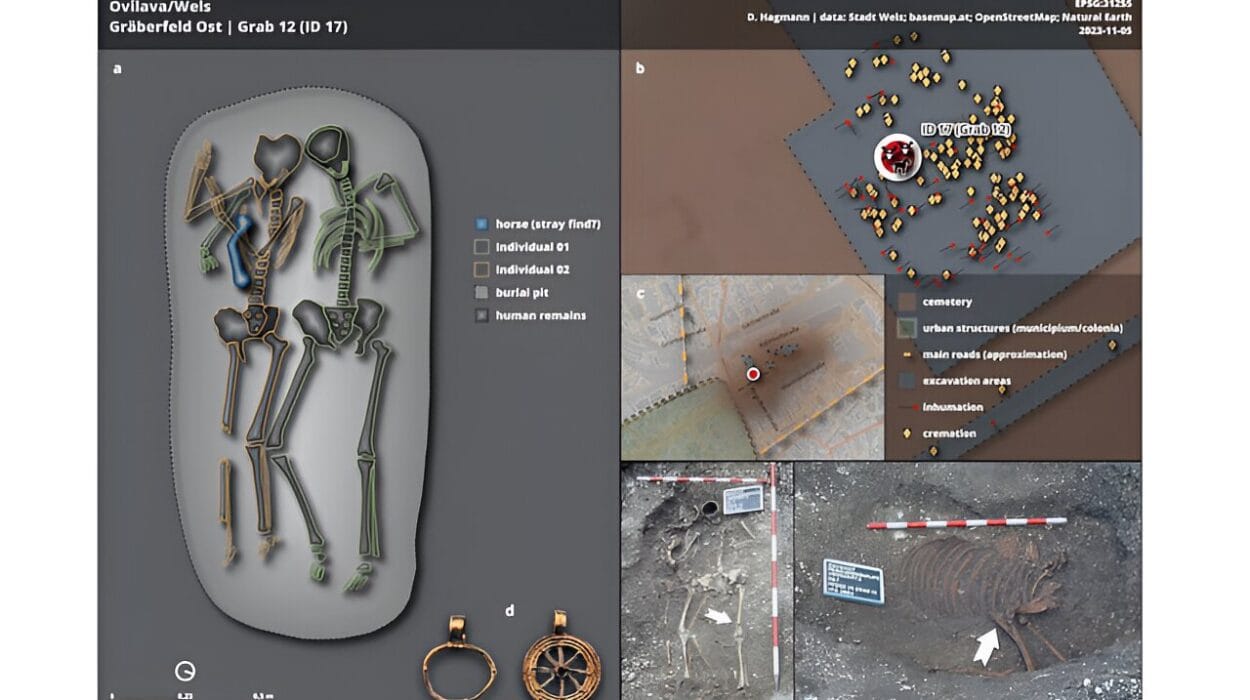Few figures in history stand as tall, as controversial, and as unforgettable as Gaius Julius Caesar. His name itself has become synonymous with power, ambition, and political transformation. Caesar was more than a general, more than a statesman—he was a man who reshaped the Roman Republic and set the stage for the Roman Empire. His life was one of dazzling triumphs and dangerous gambles, of loyalty won and loyalty betrayed, of a meteoric rise to supreme power followed by a shocking assassination.
To trace Caesar’s journey is to explore the turbulent final years of the Roman Republic, when political rivalries, social unrest, and military ambition collided. It is a story filled with strategy and spectacle, with wars that stretched across continents and speeches that stirred the Roman people. But it is also a deeply human tale—of a man driven by vision, charisma, and a relentless hunger for greatness.
Rome Before Caesar: A Republic in Crisis
When Caesar was born in 100 BCE, Rome was already a rising superpower, controlling territories across the Mediterranean. Yet beneath its grandeur lay cracks that threatened to shatter the Republic. Wealth from conquest had poured into the city, enriching elites while deepening inequality among ordinary citizens. Corruption spread through the Senate, rival factions engaged in bitter power struggles, and ambitious generals increasingly relied on personal armies rather than traditional civic authority.
The Republic was supposed to be governed by balance—between consuls, the Senate, and the assemblies—but by Caesar’s time, that balance was collapsing. The careers of earlier figures like Gaius Marius and Lucius Cornelius Sulla revealed the dangers of military strongmen wielding political power. Rome was ripe for change, and into this atmosphere stepped Julius Caesar.
The Young Caesar: Ambition in the Making
Caesar was born into the patrician Julii family, an old but not particularly wealthy lineage that claimed descent from Venus through the Trojan prince Aeneas. From an early age, he was surrounded by politics. His aunt Julia had been married to Gaius Marius, a powerful general and populist politician. This connection tied Caesar to the populares, a political faction that sought to champion the rights of the common people against the aristocratic optimates.
His early years were shaped by danger and determination. When the dictator Sulla seized power in Rome, Caesar’s family connections to Marius made him a target. Sulla ordered Caesar to divorce his wife Cornelia, the daughter of a political rival, but Caesar refused. This act of defiance could have cost him his life, but it also revealed his resolve. Caesar was forced into hiding until powerful friends interceded on his behalf.
Caesar’s youth was marked by ambition and a hunger for recognition. He studied rhetoric under the famed teacher Apollonius Molon in Rhodes, honing the oratorical skills that would make him a master of persuasion. He also served in the military, earning the civic crown for bravery in battle. By the time he returned to Rome, Caesar was ready to begin climbing the ladder of power.
The Rise of a Politician
Caesar entered Roman politics with the energy and charisma that would define his career. He aligned himself with the populares, skillfully appealing to the people through both policy and spectacle. He won the office of quaestor in 69 BCE, later serving as aedile, where he spent lavishly on games and public works to win public favor. Though this plunged him into debt, it also made him one of the most popular figures in Rome.
As pontifex maximus, the chief priest of Rome, Caesar secured a prestigious position that further cemented his influence. He gained a reputation as a brilliant speaker, a skilled negotiator, and a man unafraid to challenge the Senate’s authority. His debts, though crushing, were backed by wealthy allies like Marcus Licinius Crassus, one of Rome’s richest men, who saw potential in Caesar’s political future.
The First Triumvirate: A Dangerous Alliance
By 60 BCE, Caesar’s ambitions collided with the power struggles dominating Rome. The Senate was controlled by optimates resistant to Caesar’s populist leanings. To overcome this, he forged an informal alliance with Crassus and another rising general, Gnaeus Pompeius Magnus—better known as Pompey the Great.
This alliance, known as the First Triumvirate, combined immense wealth (Crassus), military prestige (Pompey), and popular appeal (Caesar). Together, they dominated Roman politics, pushing through legislation that advanced their interests. Caesar was elected consul in 59 BCE, using his position to secure land reforms and other measures that won him lasting support among the people.
The Triumvirate was never a stable partnership—it was a pact of convenience rather than trust. Yet it gave Caesar the platform he needed to launch the next phase of his career: military command in Gaul.
Conquest of Gaul: The Making of a General
If Caesar’s political career made him famous, his conquest of Gaul made him legendary. From 58 to 50 BCE, Caesar waged campaigns across modern-day France, Belgium, and parts of Switzerland and Germany. His victories brought vast territories under Roman control and immense wealth into his hands.
Caesar proved himself a master of strategy and logistics. His Commentaries on the Gallic War, written in clear and compelling prose, presented him not only as a brilliant commander but also as a statesman bringing civilization to barbarian lands. These writings were propaganda as much as history, carefully crafted to enhance his reputation back in Rome.
One of his most famous feats was the defeat of the Gallic chieftain Vercingetorix at the Battle of Alesia in 52 BCE. Outnumbered and besieged, Caesar’s forces built double fortifications—one to trap the enemy inside, another to fend off reinforcements outside. The victory was decisive, cementing Caesar’s control over Gaul.
By the end of the campaign, Caesar commanded legions fiercely loyal to him personally, not to the Senate. This loyalty would soon bring him into direct conflict with Rome’s traditional institutions.
The Road to Civil War
While Caesar was expanding Rome’s empire, politics in the city grew increasingly volatile. Crassus was killed in 53 BCE during a failed campaign in Parthia, leaving Caesar and Pompey as rivals rather than allies. Pompey drifted closer to the Senate and the optimates, while Caesar remained aligned with the populares.
The Senate, fearful of Caesar’s power, demanded he relinquish his command and return to Rome as a private citizen. This would leave him vulnerable to prosecution by his enemies. Caesar, however, refused to surrender his legions. Instead, in 49 BCE, he made a fateful decision that would change history: he crossed the Rubicon River with his army, declaring in effect war on the Senate.
“Alea iacta est”—the die is cast—Caesar is said to have declared. With that single step, Rome plunged into civil war.
Caesar vs. Pompey: Clash of Titans
The civil war that followed was a contest between two of Rome’s greatest generals. Pompey commanded the loyalty of much of the Senate and many of Rome’s traditional elites, while Caesar had the devotion of his battle-hardened legions and the support of the people.
Initially, Pompey withdrew to Greece, where he gathered forces. Caesar moved swiftly, taking control of Italy and seizing Rome without significant resistance. In 48 BCE, the two forces met at the Battle of Pharsalus in Greece. Despite being outnumbered, Caesar’s tactical genius delivered a crushing victory.
Pompey fled to Egypt, hoping to find refuge with the Ptolemaic dynasty. Instead, he was assassinated on the orders of the young Pharaoh Ptolemy XIII, who sought to curry favor with Caesar. When Caesar arrived in Egypt and was presented with Pompey’s severed head, he reportedly wept—whether from genuine sorrow or political calculation remains debated.
Caesar in Egypt: Love and Politics
Caesar’s time in Egypt was marked by one of history’s most famous romances. There, he encountered Cleopatra VII, the brilliant and ambitious queen struggling to maintain her throne against her brother Ptolemy XIII. Caesar threw his support behind Cleopatra, and the two became lovers.
Their union was both personal and political. Cleopatra secured her position as queen, while Caesar gained an ally in Egypt and, reportedly, a son—Ptolemy XV, known as Caesarion. Caesar’s stay in Alexandria also demonstrated his strategic adaptability, as he survived a dangerous siege before emerging victorious.
Cleopatra’s presence in Caesar’s life would later fuel rumors and suspicions in Rome, but for now, it marked another chapter in his expanding influence.
From Victor to Dictator
By the time Caesar returned to Rome, he was unrivaled. He had defeated Pompey, subdued opposition in Africa and Spain, and won the loyalty of the army and the people. In 46 BCE, he was appointed dictator, initially for ten years, and later declared dictator perpetuo—dictator for life.
As dictator, Caesar launched sweeping reforms. He reorganized the calendar, introducing the Julian calendar, which remains the basis of our modern system. He expanded citizenship, reformed debt laws, and launched public works projects to employ Rome’s poor. He sought to reduce corruption in the provinces and strengthen the central government.
Yet his accumulation of power alarmed many senators. The Republic had long prided itself on checks and balances, on the idea that no single man should dominate. To Caesar’s enemies, his dictatorship looked like monarchy by another name. His refusal to step aside, his honors and titles, and even his seating arrangements in the Senate all fed suspicions that he aimed to be king—a title Romans despised.
The Ides of March: Betrayal in the Senate
On March 15, 44 BCE—the Ides of March—Caesar entered the Senate chamber, unaware that a conspiracy was about to unfold. A group of senators, including some he considered allies, had plotted his assassination. They believed that by killing him, they could restore the Republic and prevent Rome from falling under tyranny.
Led by Gaius Cassius and Marcus Junius Brutus, the conspirators surrounded Caesar. In a storm of daggers, he was stabbed twenty-three times. According to legend, when Caesar saw Brutus among his attackers, he uttered the words, “Et tu, Brute?”—“You too, Brutus?” Whether he spoke them or not, the moment has become immortal, symbolizing ultimate betrayal.
Caesar fell at the base of Pompey’s statue, a grim irony that underscored the cycle of rivalry and revenge that had consumed Rome.
Aftermath: The End of the Republic
The conspirators believed they had saved the Republic, but they had miscalculated. Caesar’s assassination plunged Rome into chaos, sparking new rounds of civil war. Far from restoring the Republic, his death accelerated its collapse.
Caesar’s allies, including Mark Antony and Octavian—his adopted heir and later Augustus—moved swiftly to claim his mantle. Octavian ultimately triumphed, becoming Rome’s first emperor. In death, Caesar achieved what he had never fully secured in life: the end of the Republic and the birth of the Roman Empire.
Caesar’s Legacy
Julius Caesar remains one of history’s most polarizing figures. To some, he was a tyrant whose ambition destroyed the Republic. To others, he was a visionary reformer who recognized the Republic’s failings and sought to build a stronger, more just system.
His military genius, political skill, and rhetorical brilliance remain admired. His writings continue to be studied not only as historical sources but also as masterpieces of Latin prose. His reforms left lasting marks, including the calendar that still governs our lives.
Above all, Caesar’s life illustrates the tension between ambition and responsibility, between personal power and collective governance. His rise and fall embody the fragility of political systems and the enduring struggle between democracy and dictatorship.
Conclusion: The Man Who Became a Legend
Julius Caesar was not the first Roman general to seize extraordinary power, nor the last. But he was the one who changed everything. His boldness and brilliance carried him from a young politician in debt to the dictator of the Roman world. His choices shaped the course of history, setting Rome on a path that would echo for centuries.
His assassination was not the end of his story but the beginning of a new era. Rome would never return to its Republic; instead, it became an empire under his heir, Augustus. Caesar’s name would live on—not only in history but in language itself, as Caesar, Kaiser, and Tsar, all titles for rulers.
To speak of Julius Caesar is to speak of ambition, genius, betrayal, and transformation. He was a man of contradictions—merciful yet ruthless, brilliant yet reckless, adored yet despised. Above all, he was human, and in his humanity, he captured the eternal drama of power: the rise, the reign, and the fall.
In the end, Caesar was not just a general or a dictator. He was a turning point in history, a man whose life and death forever altered the story of Rome—and the story of civilization itself.






